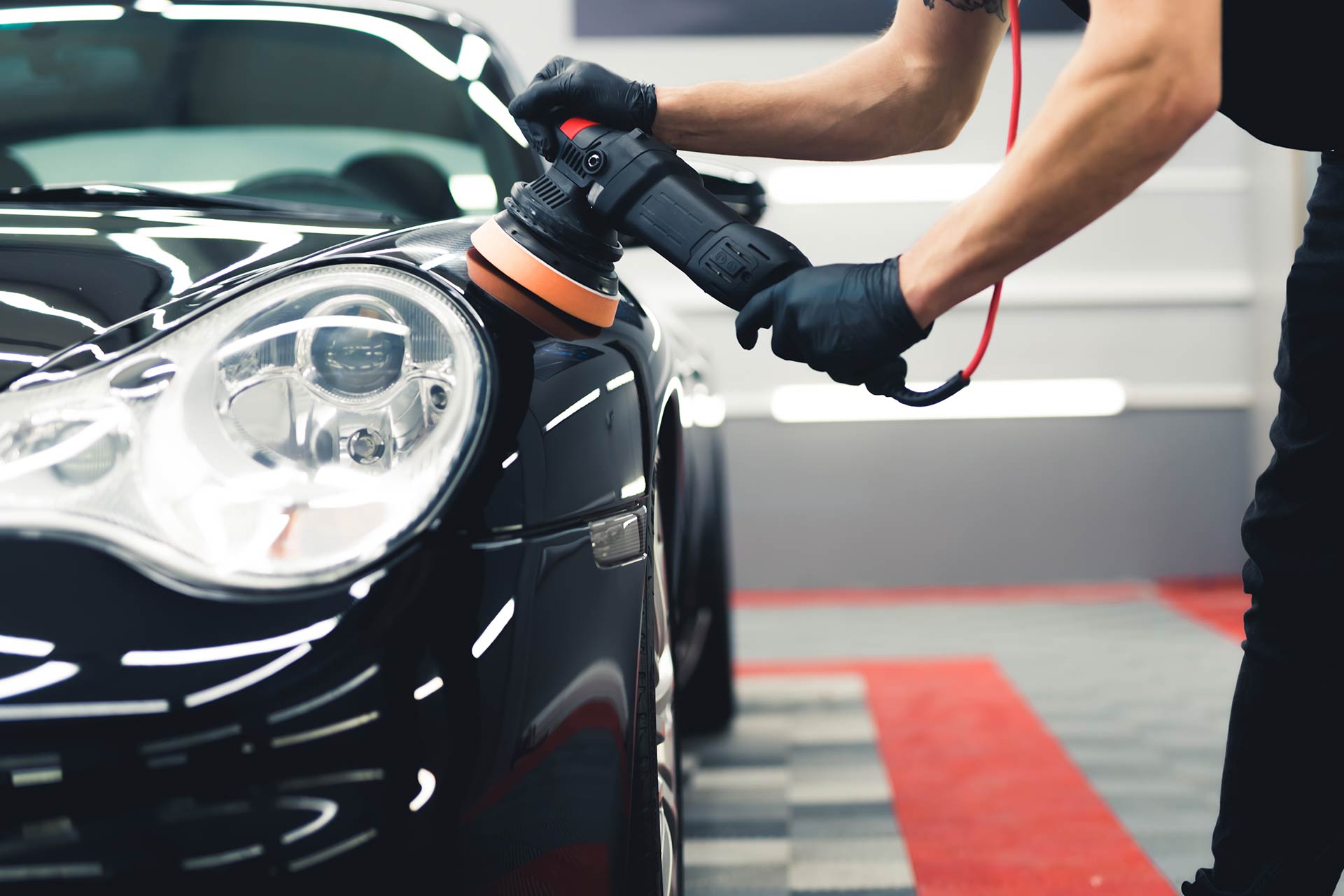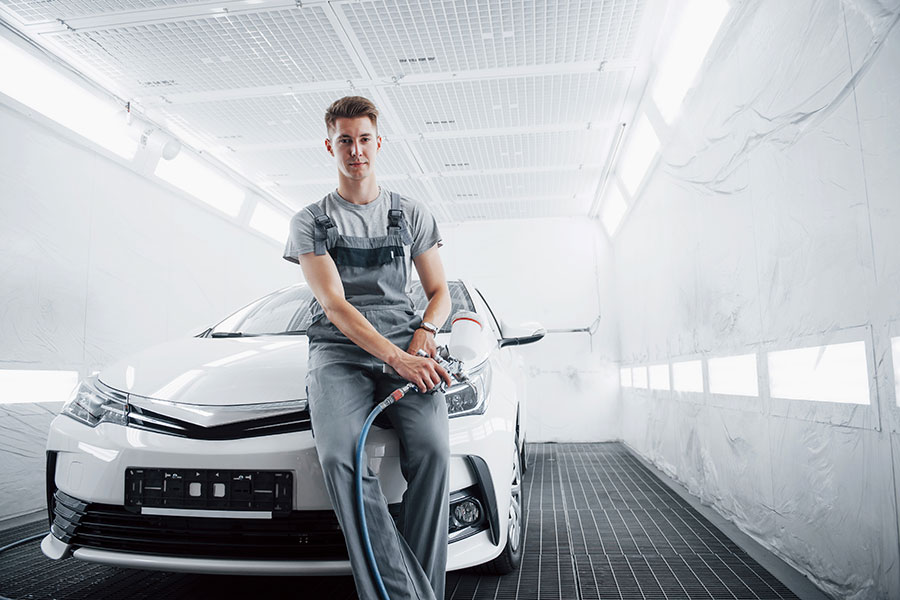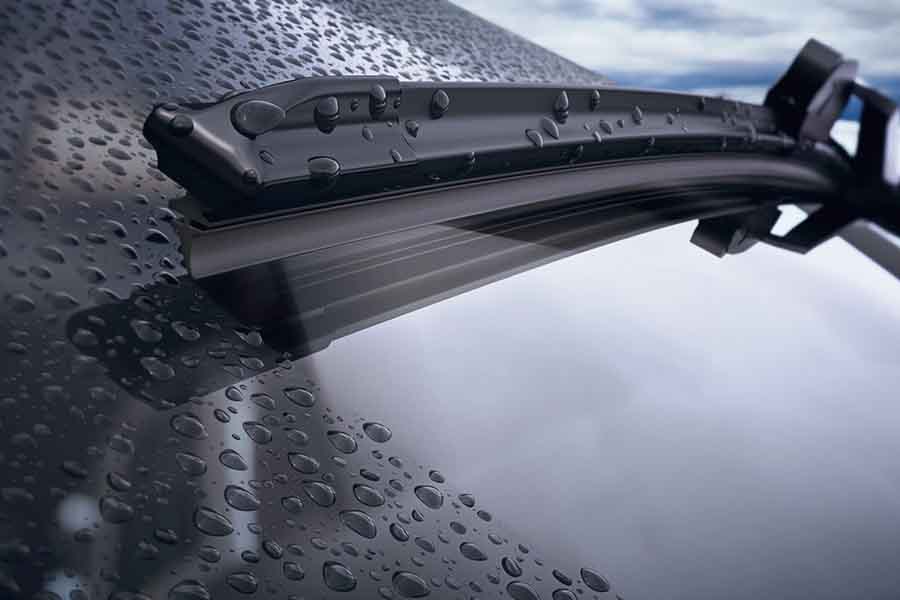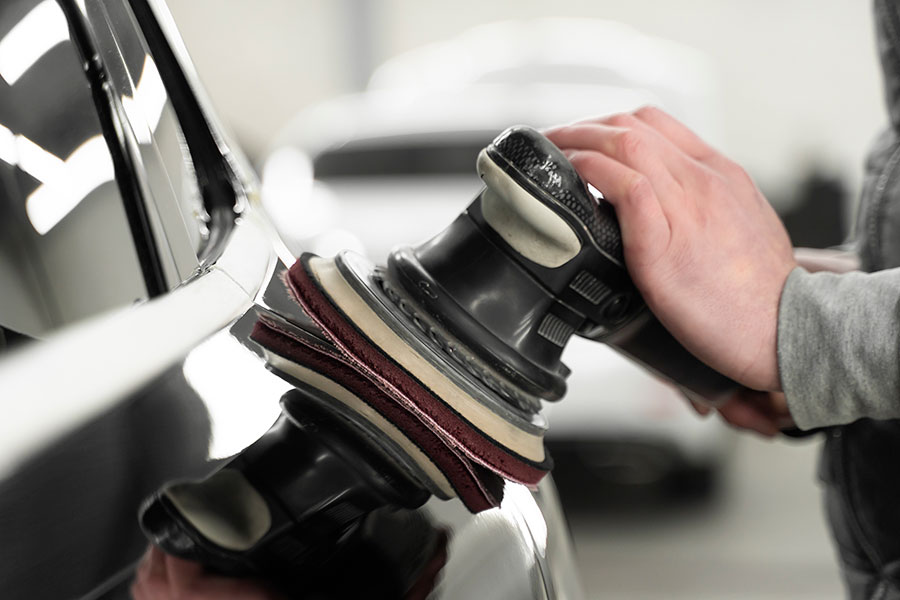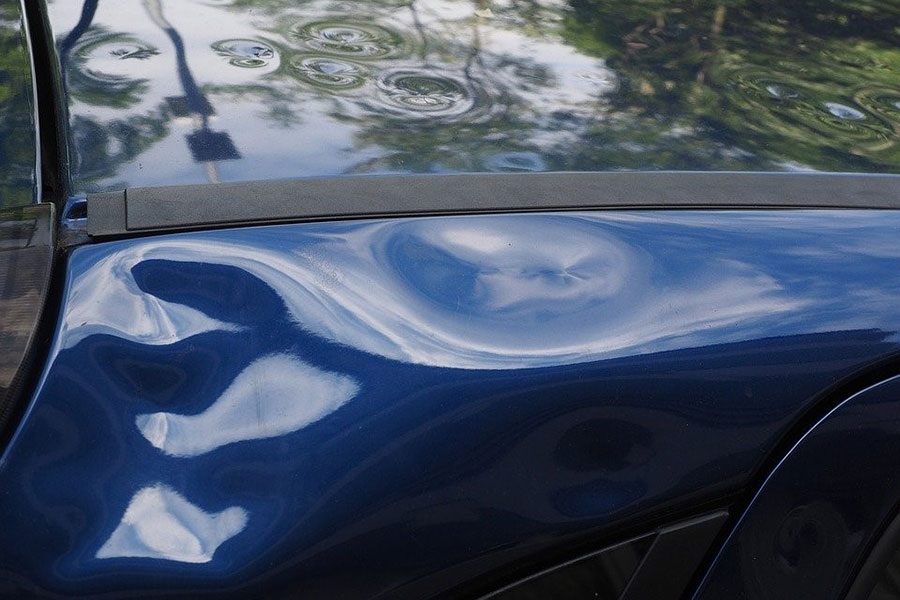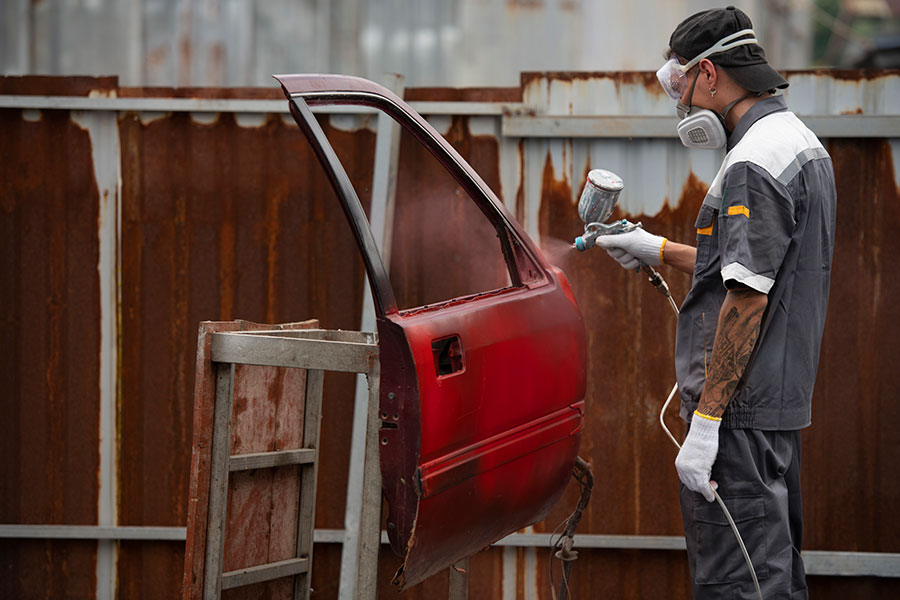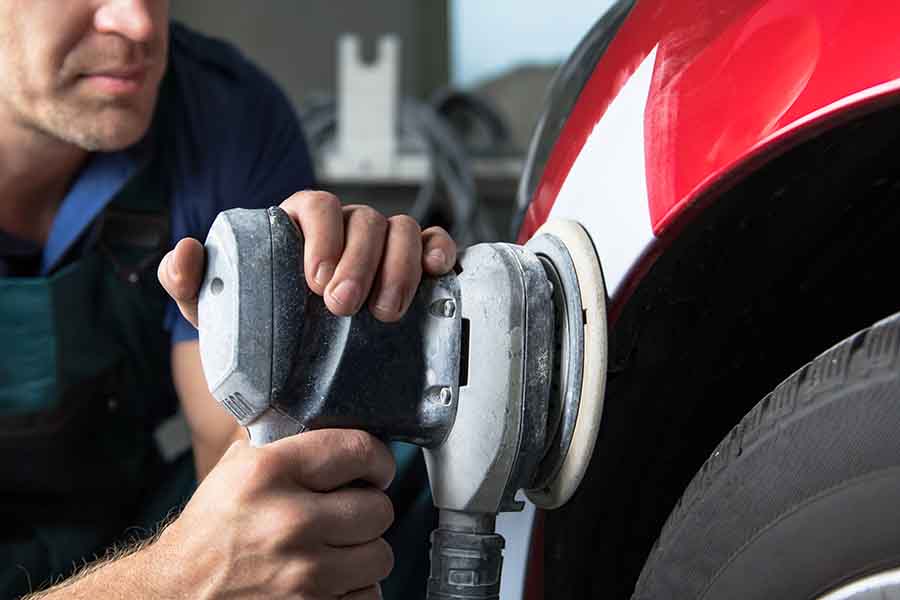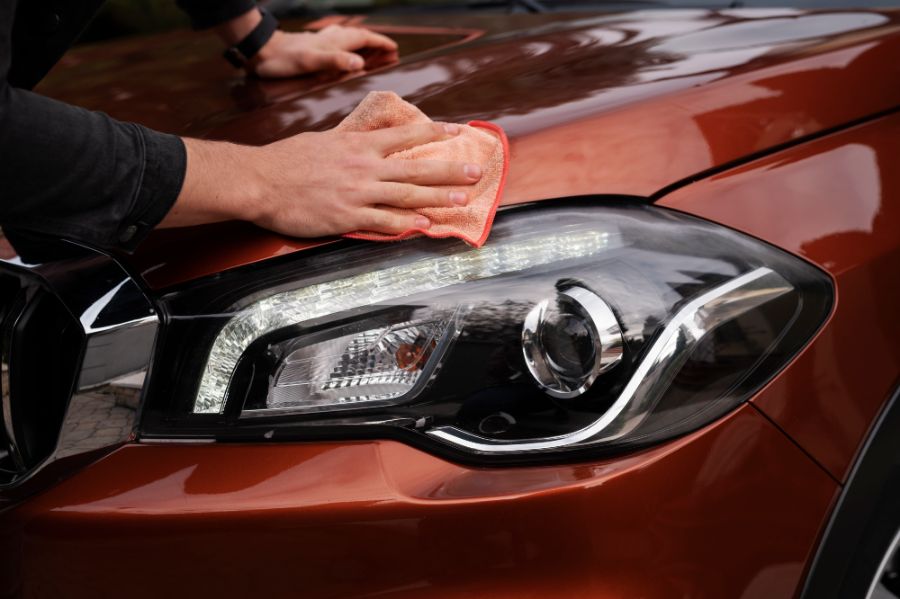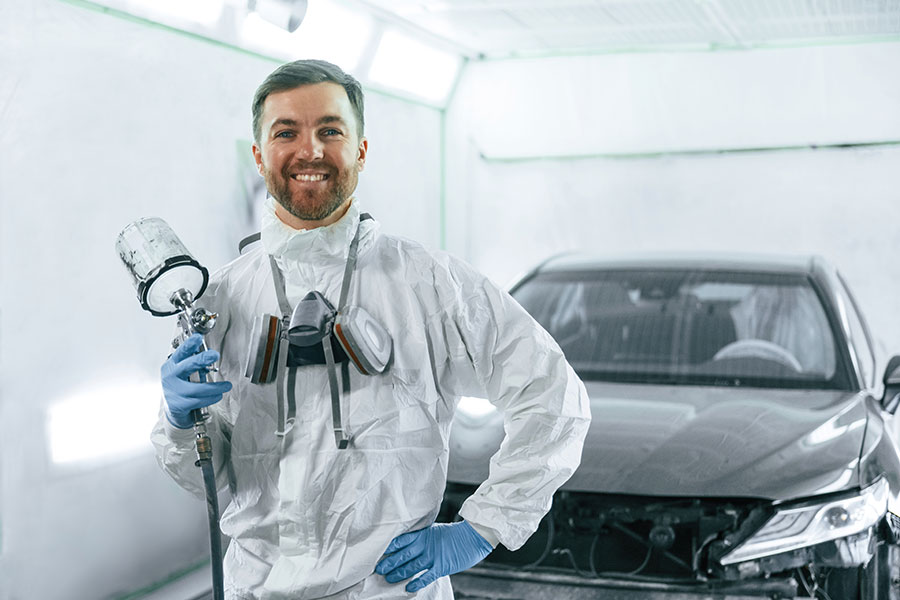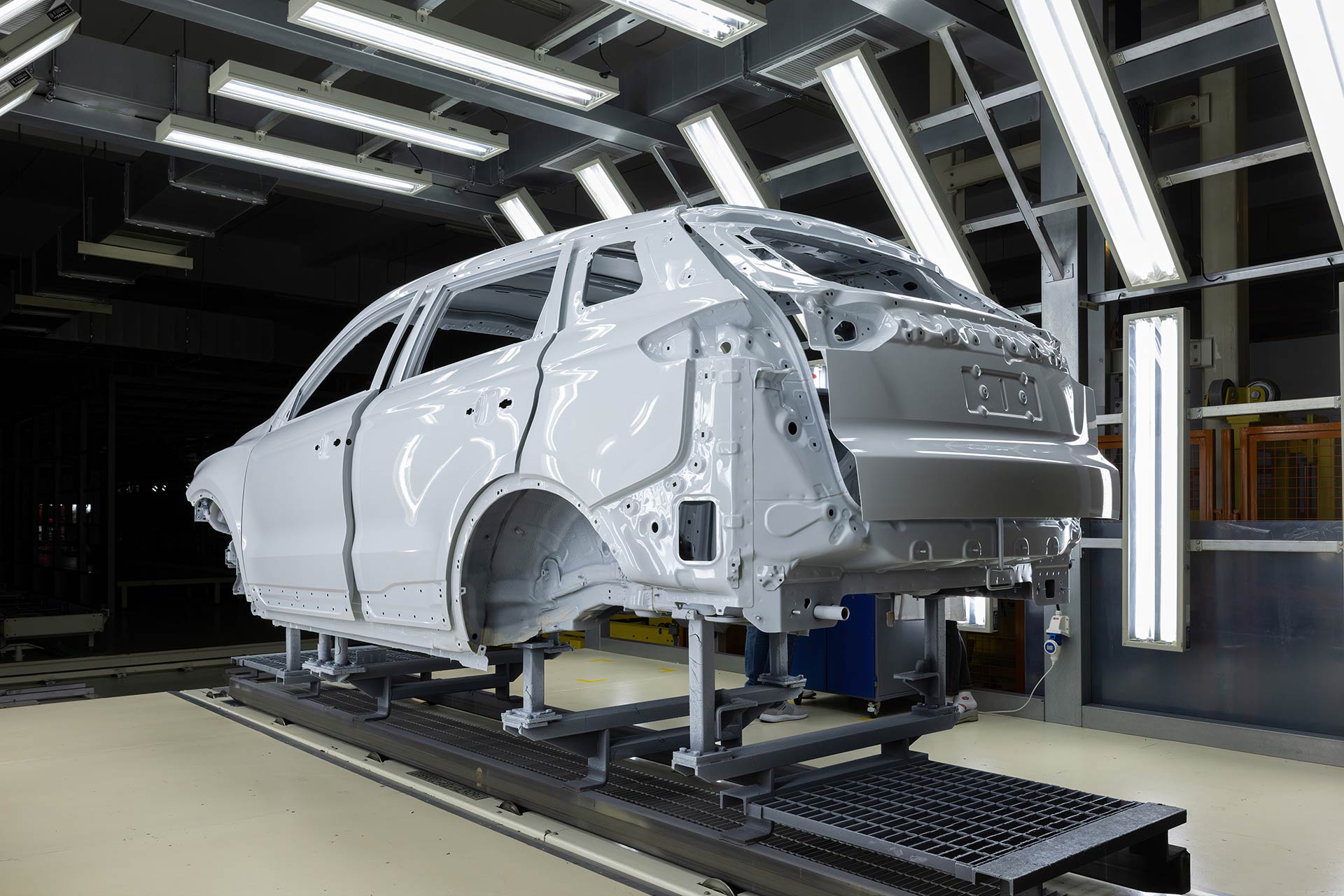80% of car owners will face the critical choice between a body shop and dealership repair at some point in their vehicle's life. This decision can seem daunting, especially when you're trying to balance quality, cost, and time. On one hand, dealerships boast manufacturer-specific expertise and potentially higher quality parts. On the other, independent body shops often offer more personalized service and competitive pricing. Navigating this choice doesn't have to be a headache. Understanding the key differences and what each option brings to the table can significantly ease your decision-making process. Whether it's minor dents or major repairs, knowing where to turn can save you both time and money while ensuring your car receives the care it needs.
Choosing the Right Repair Option
Damage Evaluation
Evaluating your vehicle's damage is the first step in deciding between a body shop and dealership repair. Minor dents or scratches might not need the specialized services of a dealership. However, complex repairs, especially those involving the vehicle's safety systems, may benefit from a dealership's expertise.
Body shops excel in handling exterior damages efficiently. They often have more flexibility in scheduling and can be less expensive than dealerships. On the other hand, dealerships have access to original equipment manufacturer (OEM) parts and are familiar with the specific make and model of your vehicle. This knowledge is crucial for repairs related to the car's warranty or lease conditions.
Warranty Implications
Warranty considerations are vital when choosing where to get your car repaired. Repairs done at a dealership are guaranteed to use OEM parts, ensuring that your vehicle remains within warranty specifications. This is particularly important for newer cars still under the manufacturer's warranty.
Body shops, while sometimes offering cheaper aftermarket parts, may not always meet the strict criteria set by your vehicle's warranty. It's essential to check with your warranty provider before opting for repairs outside the dealership. Some warranties are voided if repairs are not completed by authorized dealerships.
Research and Comparison
Doing thorough research and comparing both options based on your specific needs will guide you towards the right decision. Start by reading reviews online and asking for recommendations from friends or family. Consider factors such as cost, time for repair, and convenience.
Get quotes from both local body shops and dealerships. Compare these quotes not just on price but on what they include. Look at the types of parts used, the estimated repair time, and whether or not they offer a warranty on their work.
It's also beneficial to visit both types of facilities in person if possible. This allows you to assess their customer service firsthand and ask any questions you may have about the repair process.
Dealership Repair Explained
OEM Parts
Dealerships stand out for their use of original equipment manufacturer (OEM) parts in repairs. These parts are made by the vehicle's maker, ensuring a perfect match and optimal performance. Unlike aftermarket parts, OEM components maintain the car's integrity and can help retain its value over time.
Choosing dealership services means your vehicle gets the exact parts it was designed to work with. This can be particularly important for complex systems or newer models where precision is key.
Trained Technicians
Technicians at dealerships receive specific training from the car manufacturer. They have deep knowledge of the brand’s vehicles, equipped to handle intricate issues that generic mechanics might miss. This specialized training ensures that repairs are done right the first time, reducing the need for return visits.
These professionals stay updated on the latest automotive technology and repair techniques. Their expertise can be a major advantage when dealing with sophisticated electronic systems or proprietary software found in modern cars.
Cost and Warranties
While dealership repairs often come with a higher price tag, they also frequently include warranties on the work performed. This warranty coverage can provide peace of mind, knowing that if something goes wrong with the repair, the cost to fix it will likely be covered.
The higher costs are attributed to the use of OEM parts and the specialized training of technicians. For many car owners, this extra expense is worth it for the added assurance and potential to preserve their vehicle’s resale value.
Body Shop Repair Overview
Personalized Service
Body shops stand out for their personal touch. Unlike dealerships, many are independently owned. This setup allows them to offer service that feels more personal. Customers often find that staff at body shops take the time to know their needs and vehicle history.
They can also be more flexible in scheduling and service options. This flexibility is a big plus for car owners who need repairs done on their own terms.
Cost-Effective Parts
One of the main advantages of body shops is their use of aftermarket or used parts. These alternatives can significantly lower repair costs without sacrificing quality. For those on a tight budget, this approach makes body shop services especially attractive.
Aftermarket parts are not made by the original manufacturer but are designed to function the same or better. Used parts, on the other hand, come from vehicles that are no longer in service but still have valuable components that work perfectly for repairs.
Range of Repairs
Body shops excel in handling a variety of damages, from minor dents and scratches to major collision repairs. Their technicians possess a wide skill set, enabling them to address almost any issue a vehicle might encounter.
This versatility means car owners can rely on body shops for comprehensive care, regardless of the damage severity. Whether it's a small cosmetic fix or extensive structural repair, body shops are equipped to bring cars back to their best condition.
Quality Assurance
While some may worry about the quality compared to dealership repairs, many body shops hold certifications that attest to their standard of work. Certifications from recognized industry organizations ensure technicians are up-to-date with the latest repair techniques and technologies.
Moreover, reputable body shops guarantee their work, offering warranties for their services. This assurance adds an extra layer of confidence for customers choosing body shops over dealership repair centers.
Comparing Repair Costs
Dealership Factors
Dealerships often have a higher price tag on repairs. They use OEM (Original Equipment Manufacturer) parts for replacements. These parts match exactly what came with your vehicle. They ensure quality but at a cost.
Technicians at dealerships receive training directly from the manufacturer. This specialized knowledge means your car gets expert care. Yet, it contributes to the overall higher costs of repairs.
Body Shop Pricing
Body shops are known for their competitive pricing. They might use aftermarket parts instead of OEM ones. While these parts are less expensive, they still meet safety standards.
Body shops may also have more flexibility in labor rates. This can lead to lower repair costs compared to dealerships. Their technicians are skilled, but they might not have brand-specific training.
Cost Comparison Tips
Getting multiple estimates is crucial when comparing repair costs. It allows you to see the range of prices for the same repair work.
Look beyond the price. Consider the quality of parts and the warranty offered. Sometimes, paying a bit more upfront can save money in the long run.
Ask questions about the parts used and the technicians' qualifications. Understanding these aspects helps you make an informed decision.
Quality of Replacement Parts
OEM Parts
Dealerships exclusively use Original Equipment Manufacturer (OEM) parts. These are the same parts your car was originally built with. They guarantee a perfect match and often come with a warranty.
Using OEM parts means your vehicle maintains its integrity. It's like replacing a lost puzzle piece with the exact piece from the manufacturer. This ensures that your car runs as it was designed to, without any compromise on performance.
Aftermarket Parts
Body shops may opt for aftermarket parts. These are made by companies other than the vehicle's manufacturer. They can be less expensive, which might reduce your bill.
However, the quality and fit of aftermarket parts can vary greatly. While some aftermarket parts match or exceed OEM quality, others fall short. Choosing these parts could lead to more repairs down the line.
Safety and Value
The choice between OEM and aftermarket parts affects more than just your wallet. It impacts your vehicle’s safety and resale value too.
Vehicles repaired with OEM parts are often safer. They're made to the exact specifications of the manufacturer, ensuring that all safety features work as intended. This can be crucial in maintaining the safety standards of your vehicle.
Furthermore, cars repaired with OEM parts retain their value better over time. When it’s time to sell or trade in your car, having a full history of OEM repairs can significantly increase its market value.
Assessing Experience and Expertise
Technician Certifications
Technicians at both dealerships and body shops hold certifications. These show their skills. Look for ASE (Automotive Service Excellence) certificates. They prove a mechanic's expertise.
Dealership technicians often have brand-specific training. This makes them experts in your car's brand. Body shop workers might hold certifications too, but they're usually more general.
Track Record
A good repair shop has a history of fixing cars like yours. Ask them about their experience with your make and model. Dealerships almost always have a strong background with their own brands. Independent body shops might specialize in certain types of vehicles too.
Check online reviews and testimonials. They can tell you a lot about a shop's success with cars like yours. Happy customers usually share their stories.
Repair Complexity
Not all repairs are the same. Some are simple; others are complex. Think about your car's problem when choosing where to go.
Dealerships excel at complex repairs, especially for newer models or high-tech cars. Their technicians get updates on the latest technology directly from the manufacturer.
Body shops are great for cosmetic fixes or standard mechanical repairs. They have the tools and know-how for these tasks. But, they might not be the best for intricate engine work or software issues.
Ensuring Successful Repairs
Warranty Check
After assessing a repair shop's experience and expertise, it's crucial to verify their guarantee or warranty on work done. This step ensures you're covered should anything not meet your expectations post-repair.
Shops that offer a solid warranty signal confidence in their workmanship. They stand behind the quality of their repairs, providing peace of mind to vehicle owners. Always ask for the details of the warranty, including its duration and what it covers. This information is key to making an informed decision between a body shop and dealership repair services.
Photo Evidence
Requesting before and after photos of similar repairs is another way to gauge a shop's capability. These visuals can offer tangible proof of the quality and attention to detail the technicians bring to their work.
Photos also provide a clear expectation of the results you can anticipate for your vehicle. They allow you to visually assess the shop's ability to restore cars to their pre-accident condition. Be wary of shops that hesitate to share these photos, as it might indicate a lack of confidence in their own work.
Communication Clarity
Clear communication about the repair process and timeline is essential. It helps avoid misunderstandings and sets realistic expectations for when you can have your vehicle back.
A reputable shop will keep you informed every step of the way, from initial assessment to completion. They should be willing to explain the necessary repairs, how long they will take, and any potential delays that might arise. Good communication ensures that both parties are on the same page, minimizing stress and frustration during the repair process.
Tips for Selecting a Repair Shop
Online Reviews
People often share their experiences online. Reading these reviews can give you a good idea about the quality of a repair shop. Look for patterns in feedback. If many customers mention excellent service or the same issue, it's likely accurate.
Friends and family can also be great resources. They might have gone through the same process and can recommend a shop they trust. This personal recommendation adds another layer of reliability to your choice.
Visit Personally
Seeing is believing. Visiting a repair shop allows you to check its cleanliness and organization firsthand. A well-kept space often reflects the team's attention to detail and pride in their work.
Notice how staff interact with customers and manage operations. Friendly and professional communication is a good sign. It shows they value customer service and are likely to take good care of your vehicle.
Parts Policy
Understanding a shop’s policy on parts is crucial. Some shops use Original Equipment Manufacturer (OEM) parts, while others opt for aftermarket parts. OEM parts come from the car's maker. They match what was originally in your car. Aftermarket parts are made by other companies and might be less expensive.
Ask the shop about their policy. If they offer both options, inquire about the price difference and any impact on warranties. Your choice could affect your car's performance and possibly its warranty.
Final Remarks
Choosing between a body shop and dealership repair boils down to what matters most to you: cost, part quality, or the expertise behind the work. Dealerships shine with their brand-specific know-how and genuine parts, while independent body shops often offer more wallet-friendly options and personal customer service. Your decision impacts not only your car’s performance but also its future value and safety. Think about what you prioritize—saving money now or investing in your vehicle's longevity.
Don't let a repair decision stress you out. Armed with knowledge on costs, part quality, and the level of expertise available, you're well-equipped to make an informed choice. Remember, the right repair shop can turn a headache into a smooth ride. Ready to make a decision? Trust your gut, and choose the option that aligns with your needs. Drive safe!
Frequently Asked Questions
What's the difference between dealership and body shop repairs?
Dealerships are directly affiliated with car manufacturers, offering specialized knowledge and parts for your car model. Body shops, however, are independent entities that can handle a wide range of vehicles and might offer more competitive pricing.
Are repairs at a dealership more expensive than at a body shop?
Generally, yes. Dealerships typically charge more due to their specialized expertise and use of original manufacturer parts. However, prices can vary based on the type of repair needed.
Can I expect better quality parts at a dealership?
Yes. Dealerships use original equipment manufacturer (OEM) parts that exactly match those your vehicle was built with, ensuring a perfect fit and longevity.
How do I choose between a dealership and a body shop for my car's repair?
Consider the warranty of your vehicle, the type of repair needed, and whether you prefer OEM parts or are open to aftermarket parts. Also, evaluate the expertise required for your specific repair.
Do body shops offer warranties on their repairs?
Many do offer warranties on their work, but the length and coverage can vary widely. It's important to ask about warranties before selecting a body shop.
Is experience and expertise different between dealerships and body shops?
Dealerships typically have technicians specifically trained by the manufacturer, offering deep expertise in your vehicle's brand. Independent body shops may have more general experience across various brands but often possess specialized skills in certain types of repairs.
How can I ensure a successful repair for my vehicle?
Look for certified technicians, ask about warranties, check reviews, and consider the complexity of your repair needs when choosing between a dealership and an independent body shop. Transparency about repair processes and costs is also crucial.
